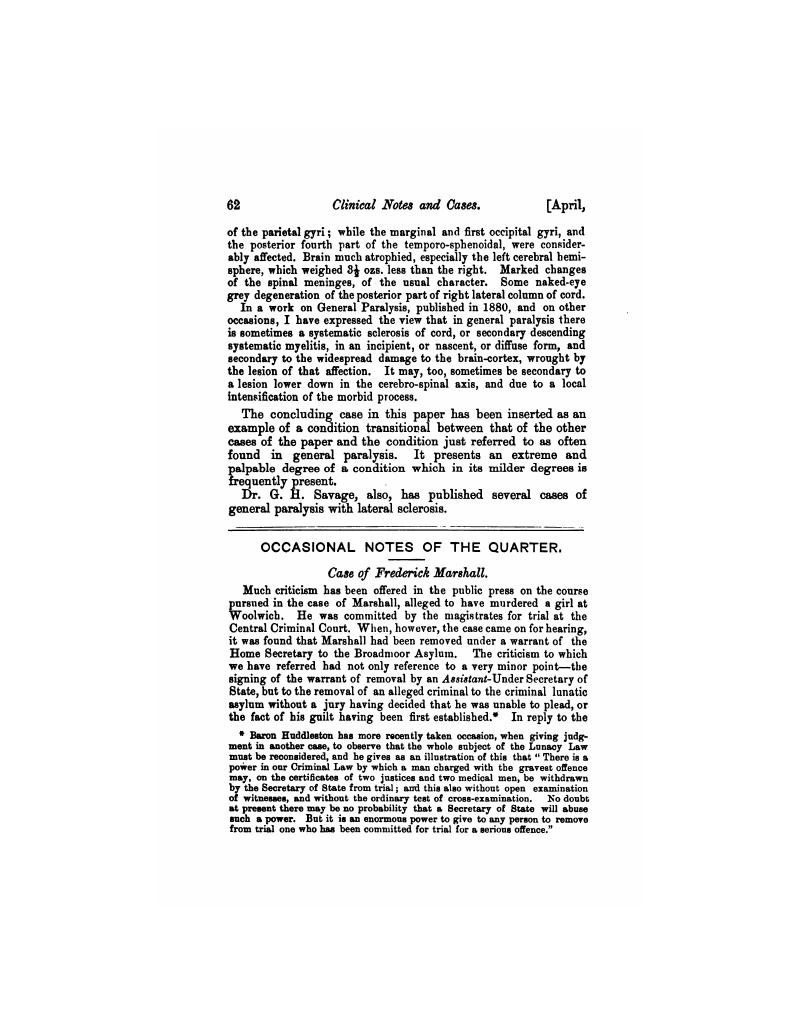No CrossRef data available.
Article contents
Case of Frederick Marshall
Published online by Cambridge University Press: 19 February 2018
Abstract

- Type
- Part I.—Original Articles
- Information
- Copyright
- Copyright © Royal College of Psychiatrists, 1885
References
* Baron Huddleston has more recently taken occasion, when giving judgment in another case, to observe that the whole subject of the Lunacy Law must be reconsidered, and he gives as an illustration of this that “There is a power in our Criminal Law by which a man charged with the gravest offence may, on the certificates of two justices and two medical men, be withdrawn by the Secretary of State from trial; and this also without open examination of witnesses, and without the ordinary test of cross-examination. No doubt at present there may be no probability that a Secretary of State will abuse such a power. But it is an enormous power to give to any person to remove from trial one who has been committed for trial for a serious offence.” Google Scholar
* Act 3 & 4 Vict., with the Act 27 & 28 Vict, making it compulsory.Google Scholar
† “Journal of Mental Science,” Oct., 1883, page 336.Google Scholar



eLetters
No eLetters have been published for this article.